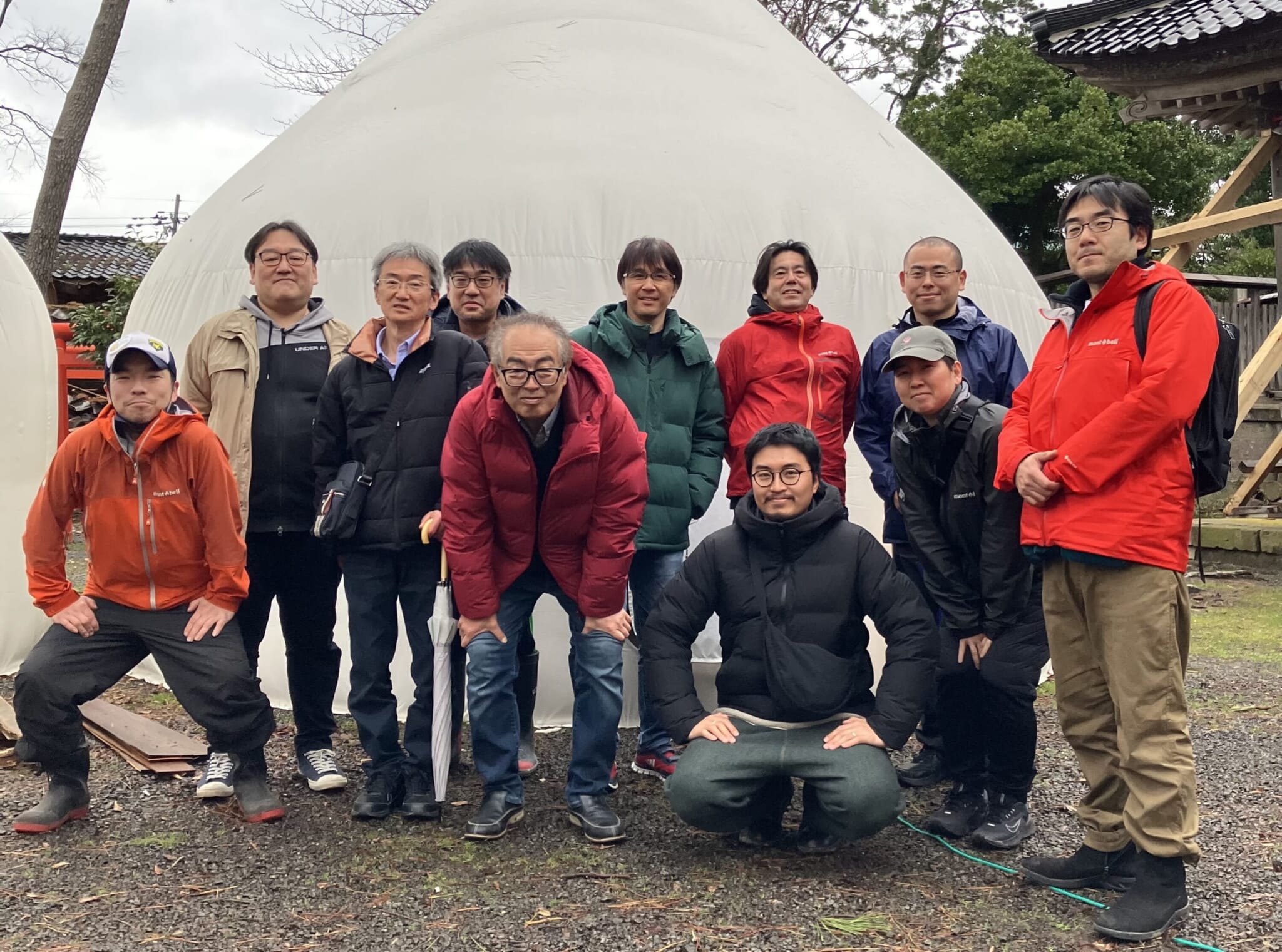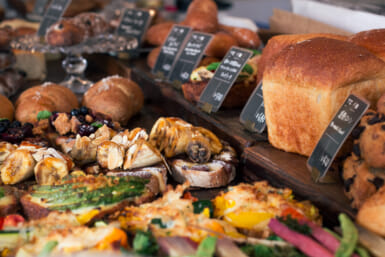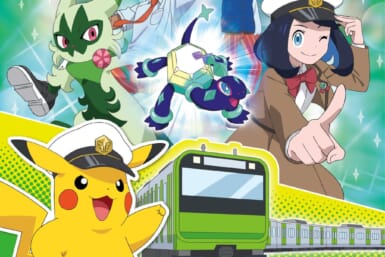On January 1, 2024, the Noto area of Japan was hit by a magnitude 7.6 earthquake, killing 222 people and injuring many more. Two months on, over 20,000 houses are still without electricity and water and over 10,000 people are still unable to return home, if they still have one.
We spoke with two residents of the affected areas: shop owner Takao Ushiozu in Kaga and Kohei Kirimoto in Wajima. Ushiozu hasn’t been able to return home because it is unstable, and Kirimoto’s home, along with his parents’ house, was completely destroyed. They shared their thoughts about how life can continue after the major disaster.
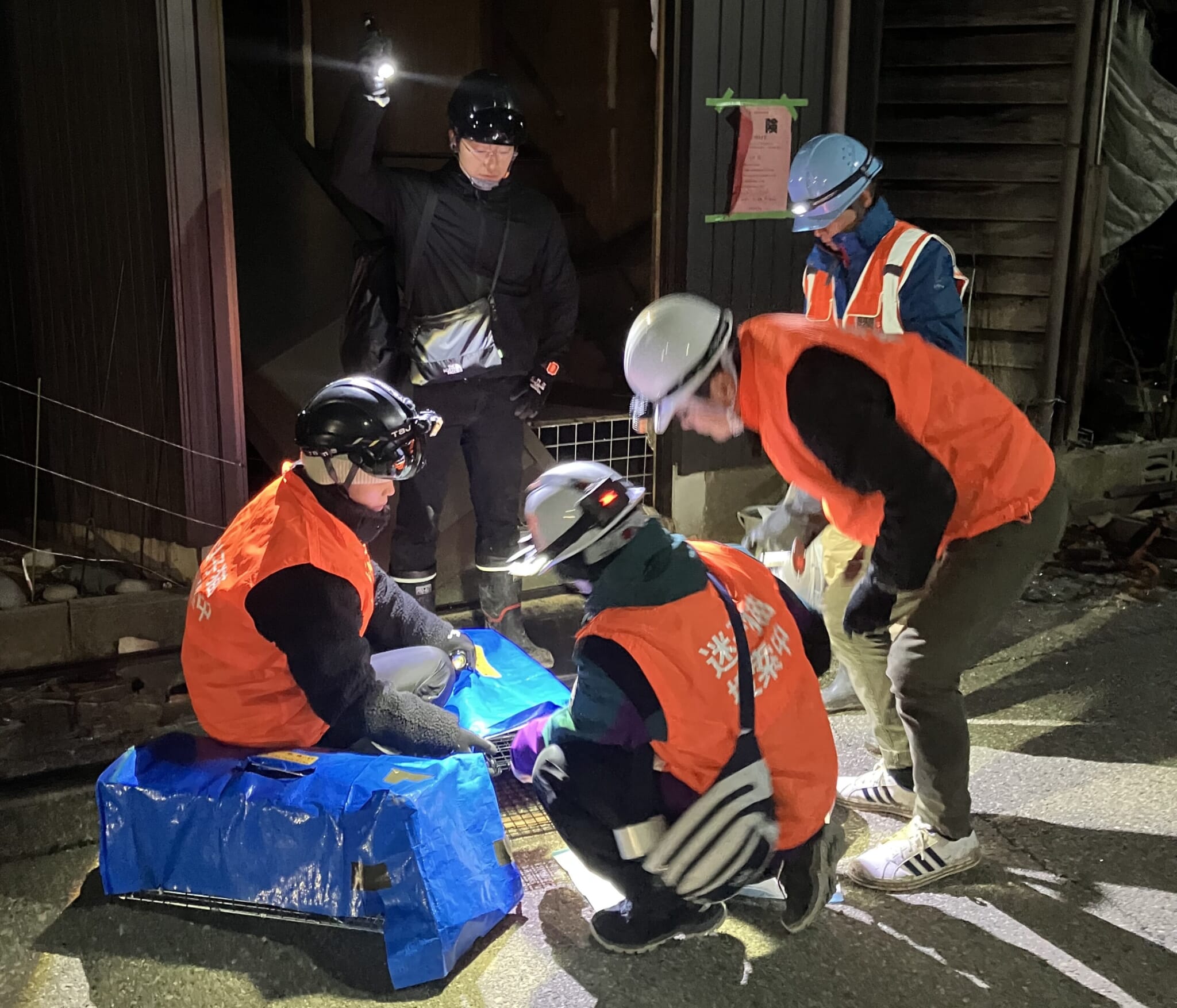
Life in Wajima
Kirimoto tells us that he has lived in Wajima his whole life. He’s a talented Asian lacquerist, known for his innovative collaborations which include Italian handbags blessed with a lick of lacquer. Prior to the earthquake, Kirimoto’s Instagram feed contained irregular pictures showing his exquisite artworks, interspersed with photos of Wajima’s nature. On January 1, however, his feed dramatically changed. Now he’s committed to sharing information and images from the ground, detailing Wajima people’s loss and recovery.
A self-confessed animal lover, Kirimoto had kept three cats and a dog. Before the earthquake, he’d wake up in the morning, walk his dog and go home again, to hang out with the cats who kept him company as he worked. “When the earthquake hit, I was out with the rest of my family and the dog,” he says. As it was New Year’s Day, the family was visiting the grave of a family member, and weren’t in the house at the time.
When he arrived home, his house had been completely destroyed. The old wooden structure had gone up in flames, as had his family home. They’d lost everything except for his father’s atelier, which had, by a lucky coincidence, been rebuilt the year before. That’s where he is staying, along with the rest of his family who have been displaced by the earthquake. “We’re lucky,” he says, “many other people are living in the evacuation centers.”
Even though he considers himself lucky, he lost over ¥10million worth of belongings (artworks and home included) in the earthquake. Everything was destroyed. He found two of his cats’ bones and has had them cremated. “They’re with me now, but I’m still looking for the other one,” he comments, his search unfinished.
Helping However They Can
Along with other local Wajima residents, Kirimoto has started a cat rescue center. They are in touch with local cat owners, who contact the team if they haven’t found their cat yet. The group has currently rescued 67 cats and counting.
The cat rescue provides residents with something meaningful to do with their days. “We can’t work, we have no money, and we can’t travel.” Many of the residents have lost their cars, homes and subsequently the tools with which to do their jobs. Kirimoto’s studio was completely obliterated, along with all his stock.
Food, Work and Current Affairs
His father’s atelier is fortunate to still be standing. He works as a designer, in a group of 10 people. While he still has his own place, the other members of the group have been evacuated or are living elsewhere. They have been separated and are still unable to congregate in order to work. “The only people working are those in the hospitals, schools, nursing homes, emergency services, drugstores and supermarkets.”
There are no restaurants although he’s particularly grateful to World Central Kitchen, an organization that provides cooked meals for residents. But while World Central Kitchen is helping somewhat, the organization makes around 1,000 meals a day, at most. This currently accounts for only around 10% of the displaced residents.
“We’ve been living off instant noodles and microwaveable foods,” he says. “There are food handouts but they aren’t enough.” Despite this, Kirimoto insists that everything is fine for the islanders. “We’re making do, but it’s the cats I’m worried about.”
With such a dire situation, it can be hard hearing certain types of news. The current scandal in Japan’s LDP ruling party, concerning politicians’ misuse of taxpayer’s money, can hit hard. “They used money that was supposed to be ours,” he says. “Are they even trying to understand how hard it is for us?”
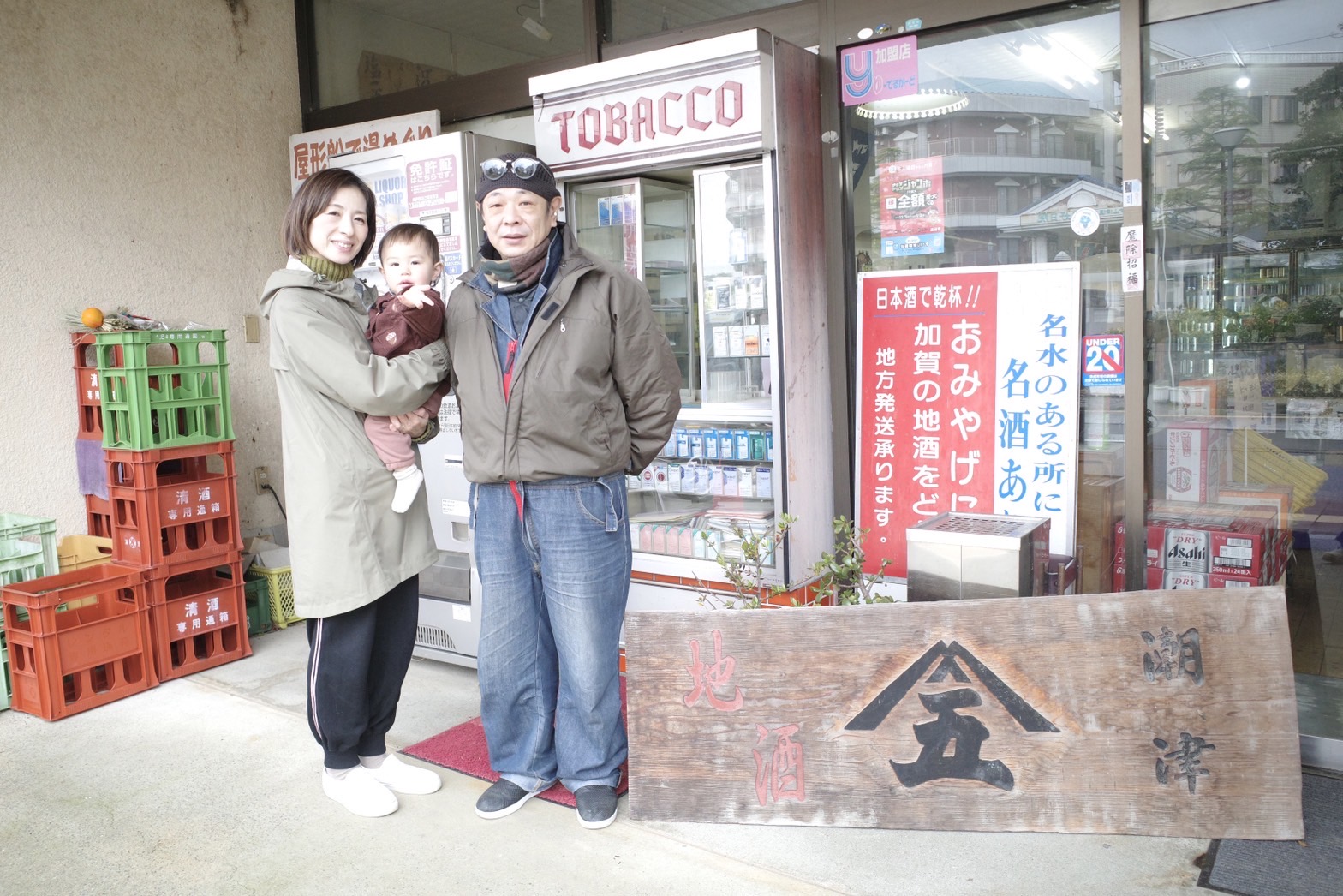
Life in Kaga
The owner of a small sake shop, Ushiozu Saketen, Ushiozu was already struggling due to the effects of the pandemic. He made his living running the shop in Katayamazu Onsen, a tiny village overlooking the Sea of Japan. The townspeople rely on tourists to sustain their businesses, and during the pandemic the business took a major hit. Finally, in 2022, after nearly three years of closure, the borders reopened, and overseas tourists started to return. Domestic Japanese travel also picked up, and things were finally looking positive. Then the earthquake hit.
Shaking the alcohol bottles off the shelves and onto the floor, the earthquake smashed the majority of Ushiozu’s stock. Simultaneously, at his home nearby, all electricity and water were cut off. “It’s very tough,” he admits. “I live with my family at the moment,” he says, but is hopeful that he can return to his home soon. It’s currently without electricity and water.
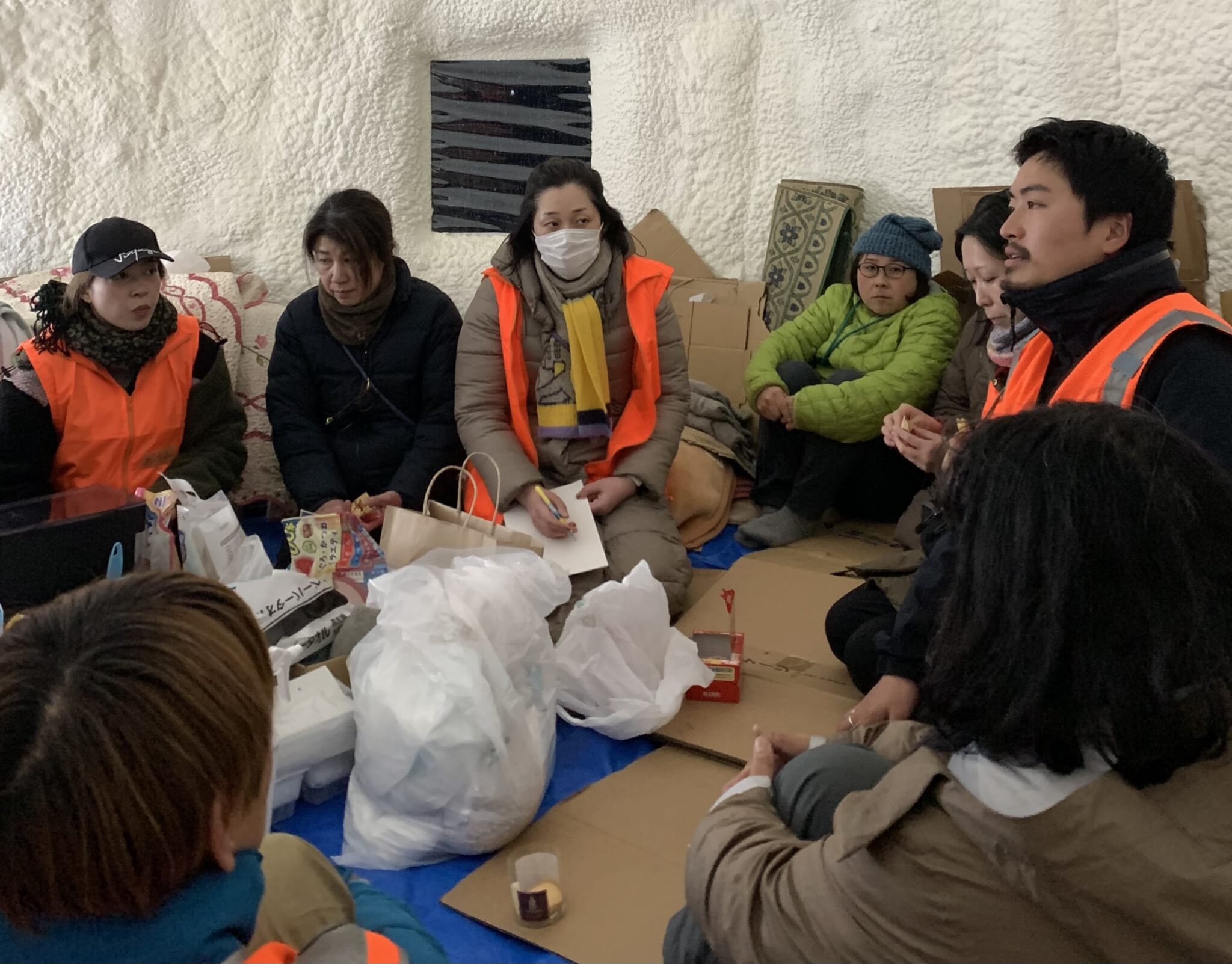
What Can We Do?
The world keeps spinning, and focus has shifted from the earthquake victims. But the relief effort is still ongoing, and for those in Wajima it is a long road to repair.
We asked Ushiozu and Kirimoto what we could do to help.
Kirimoto
“There are so many kind people coming to help us. We are looking for volunteers, especially those that can speak Japanese as I’ve heard it’s tough if you can’t. To be honest, I really think paying people is the way forward, like a part-time job — there’s a great organization that pays its staff, which I think is important. Apart from coming to Wajima to help, you can donate as well.” Kirimoto suggests his Paypal account as a place to donate, so they can keep looking for the cats. He also recommends a local animal aid charity’s crowdfunder and the wishlist from a local shrine which is helping support residents. He praises previous overseas donations. “The money from places like the US and Europe seems to reach us especially quickly,” he continues, “I get the feeling that they’re used to helping those in need.”
Ushiozu
Kaga is safe to visit, yet the tourists have not returned since the New Year’s disaster. Ushiozu has one particular way people can help. “Please come to Katayamazu Onsen! Go shopping, spend some time here and sample our local foods.”
As a liquor shop owner, it’s only natural that he recommends a bottle of his favorite tipple. “I really like an Ishikawa Prefecture nihonshu called Kiss of Fire, it’s very fresh-tasting and delicious.” He says that the flavor palate goes particularly well with washoku foods such as sashimi, especially buri (Japanese amberjack). “Locally caught buri is delicious, all us locals love it!”

